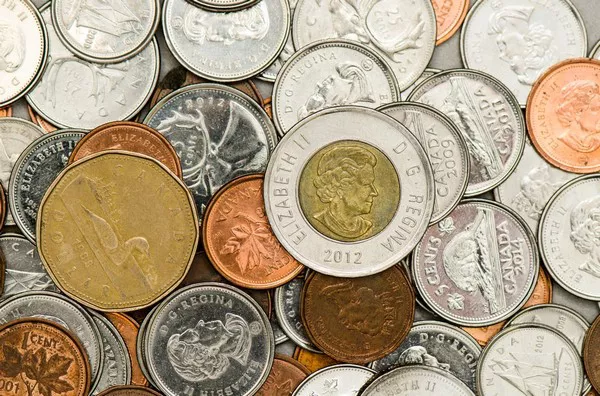Planning a trip to Canada involves numerous logistical considerations, one of which is how to handle currency exchange. Should you exchange money before traveling to Canada, or is it better to wait until you arrive? This decision can have implications for your budget, convenience, and overall travel experience. In this comprehensive guide, we explore the factors to consider when deciding whether to exchange money before traveling to Canada, providing insights to help you make an informed decision.
Understanding Currency in Canada:
The official currency of Canada is the Canadian dollar (CAD), abbreviated as “C$” or “CA$.” The Canadian dollar is subdivided into 100 cents, with coins available in denominations of 5 cents (nickel), 10 cents (dime), 25 cents (quarter), 50 cents (half-dollar), and 1 dollar (loonie). Banknotes are issued in denominations of 5, 10, 20, 50, and 100 dollars.
Canada’s banking system is highly developed, with a wide network of banks, credit unions, and currency exchange providers offering currency exchange services to residents and visitors alike. While Canadian dollars are the primary form of currency used in the country, major credit cards such as Visa, Mastercard, and American Express are widely accepted at most establishments.
Factors to Consider When Deciding Whether to Exchange Money Before Traveling to Canada:
When deciding whether to exchange money before traveling to Canada, several factors should be taken into account to ensure a smooth and hassle-free travel experience. These factors include:
1. Exchange Rate Dynamics:
Exchange rates fluctuate constantly due to changes in supply and demand, economic indicators, geopolitical events, and market sentiment. By monitoring exchange rate trends and forecasts, you can determine whether it is advantageous to exchange money before traveling or wait until you arrive in Canada.
If the exchange rate is favorable at the time of your travel, exchanging money in advance may allow you to lock in a more favorable rate and potentially save money on currency conversion fees. However, if the exchange rate is unfavorable or volatile, it may be prudent to wait until you arrive in Canada to exchange money or use alternative payment methods such as credit cards.
2. Currency Conversion Fees:
Banks, currency exchange providers, and credit card companies often charge fees and commissions for currency conversion services. These fees can vary significantly depending on the provider, the amount of currency exchanged, and the method of payment.
Before exchanging money, it is essential to inquire about the exchange rates and fees charged by different providers to assess the overall cost of currency conversion. In some cases, exchanging money in advance may incur higher fees, while exchanging money in Canada or using credit cards may offer more competitive rates and lower transaction costs.
3. Convenience and Accessibility:
Exchanging money before traveling to Canada can provide peace of mind and convenience, especially if you prefer to have cash on hand upon arrival. Having Canadian dollars readily available allows you to cover immediate expenses such as transportation, meals, and incidentals without relying solely on credit cards or ATM withdrawals.
However, exchanging money in advance may not always be feasible or practical, especially if you are traveling on short notice or have limited access to currency exchange services. In such cases, you may opt to exchange money upon arrival in Canada at airports, banks, currency exchange kiosks, or hotels.
4. Budgeting and Financial Planning:
Exchanging money before traveling to Canada allows you to budget and plan your expenses more effectively, as you know exactly how much currency you have on hand and can allocate funds accordingly. This can be particularly beneficial if you have specific travel expenses or activities planned and want to avoid overspending or relying on credit cards.
By exchanging money in advance, you can also avoid potential currency fluctuations and unexpected expenses that may arise during your trip. However, it is essential to budget conservatively and consider factors such as exchange rates, transaction fees, and unforeseen costs to ensure that you have sufficient funds for your entire stay in Canada.
5. Payment Options and Acceptance:
While cash is still widely used for small purchases and transactions in Canada, major credit cards are accepted at most establishments, including restaurants, hotels, shops, and tourist attractions. Using credit cards for purchases offers convenience, security, and rewards such as cashback, travel insurance, and loyalty points.
Before traveling to Canada, it is advisable to inform your bank or credit card provider of your travel plans to avoid potential disruptions or security issues with your cards. Additionally, it may be helpful to carry a combination of cash and credit cards to ensure flexibility and accessibility when making payments.
See Also: How to Obtain Canadian Dollars in Canada
Conclusion:
Deciding whether to exchange money before traveling to Canada requires careful consideration of various factors, including exchange rate dynamics, currency conversion fees, convenience, budgeting, and payment options. While exchanging money in advance offers certain advantages such as locking in favorable rates and ensuring immediate access to cash upon arrival, it may not always be the most cost-effective or practical option.
Ultimately, the decision to exchange money before traveling to Canada depends on your individual preferences, travel plans, and financial circumstances. By weighing the pros and cons of different currency exchange options and conducting thorough research, you can make an informed decision that enhances your travel experience and financial well-being in Canada.


